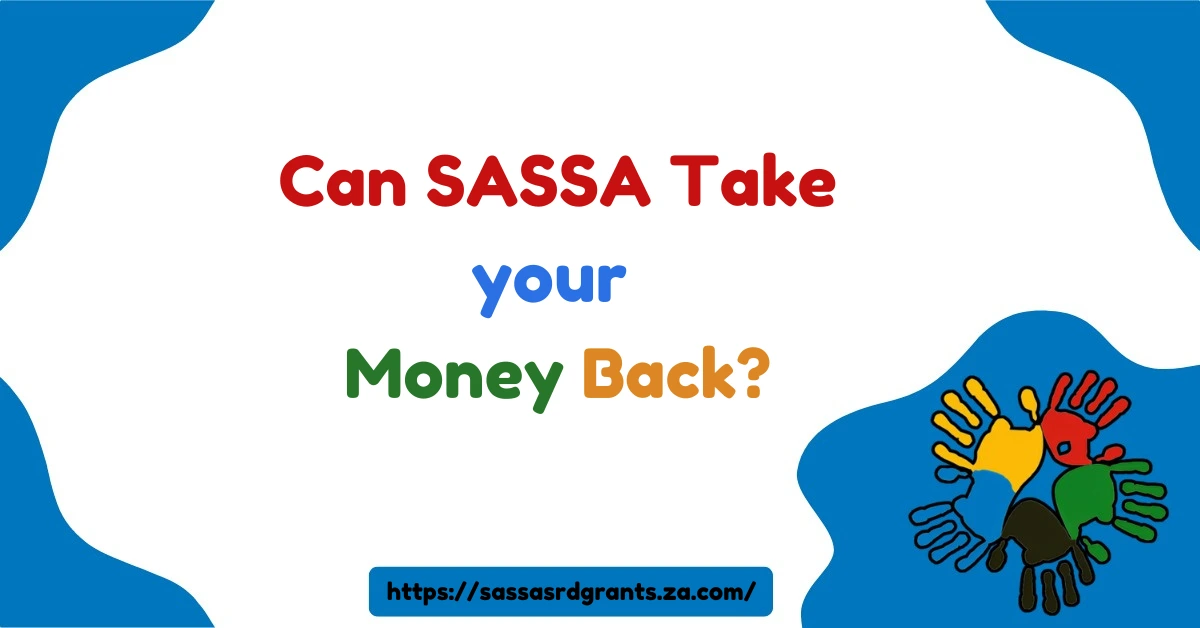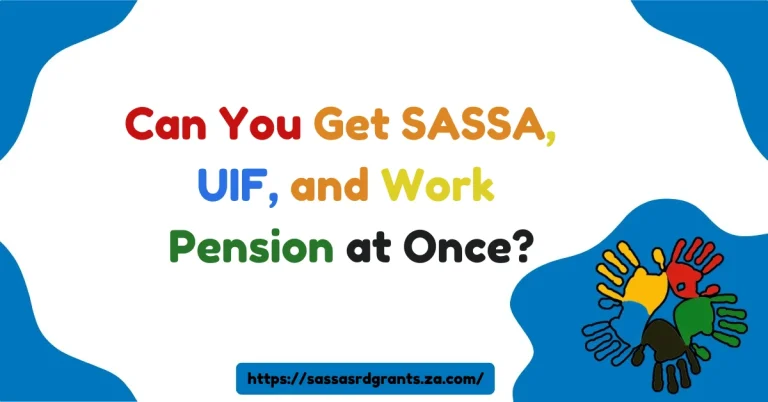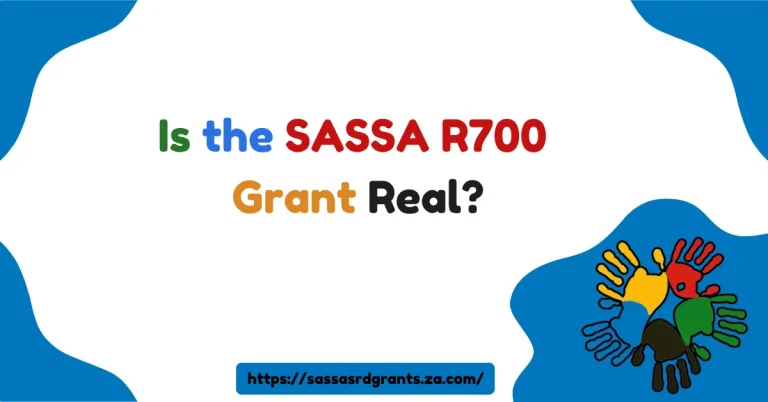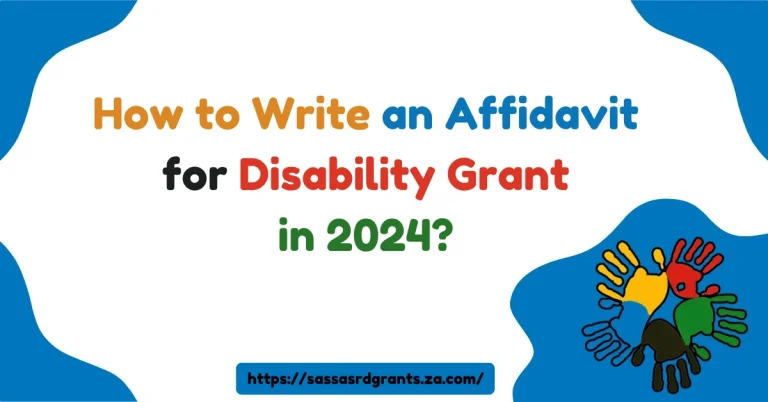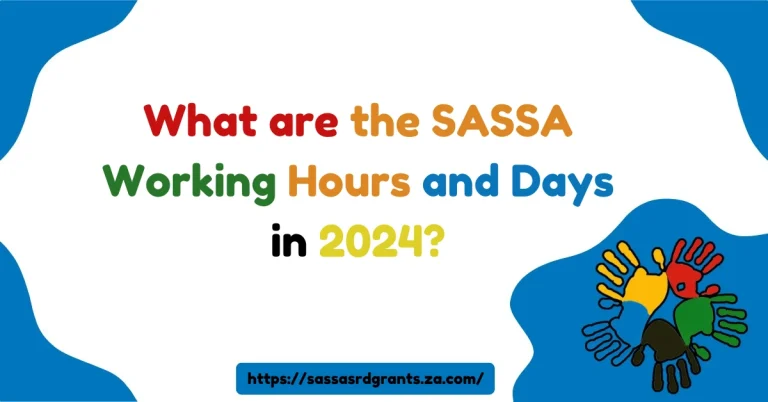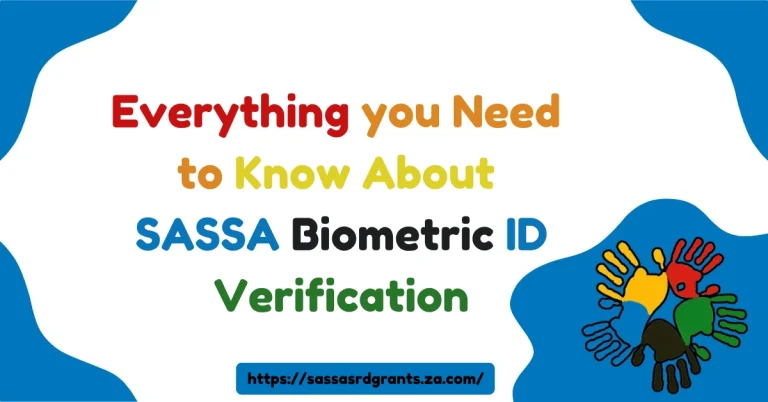Can SASSA Take your Money Back?
As someone relying on a SASSA grant, you might wonder if there’s ever a chance the South African Social Security Agency could reclaim some of the funds you’ve received.
The answer is yes; in certain situations, SASSA can take back money if it’s determined that overpayments were made, fraudulent information was provided, or eligibility has changed.
This guide will cover all the essential details of when and why SASSA might seek to recover payments, how their refund process works, and what you can do to protect your grant.
Can SASSA Take Your Money Back? (Quick Answer)
Yes, SASSA has the legal right to reclaim funds if a grant recipient received an overpayment or is found ineligible for the grant. Common reasons include inaccurate information given during the application process or changes in financial or eligibility status. To avoid this, beneficiaries should keep SASSA informed of any updates to their situation.
What Types of SASSA Grants Are Available?
SASSA administers several types of grants to assist South Africans in need. Knowing the specific grant you qualify for is essential to prevent future eligibility issues. Here are the primary types of SASSA grants:
- Old Age Grant: For elderly South Africans who meet certain income requirements.
- Disability Grant: For individuals with a permanent disability preventing them from working.
- Child Support Grant: Designed to support the guardians of minor children in need.
- Foster Child Grant: For children in foster care.
- Care Dependency Grant: For children with severe disabilities who require full-time care.
- War Veteran’s Grant: Aimed at veterans who served in the military.
- Grant-in-Aid: Additional aid for those already receiving a disability grant who need regular care.
Each grant has unique eligibility criteria, typically based on age, income level, or health condition. Being informed about the right grant and maintaining updated records helps in avoiding problems later.
When Can SASSA Take Money Back?
The Social Assistance Act allows SASSA to recover funds under certain circumstances. Here are the primary situations where this may occur:
- Overpayments: Sometimes, beneficiaries receive more than they’re entitled to due to clerical errors or processing mistakes.
- Fraudulent Claims: If someone knowingly provides false information or claims a grant they are not eligible for, SASSA has the right to recover the funds.
- Changes in Eligibility: Life changes, such as an increase in income or an improvement in health, might make a person ineligible for a previously awarded grant.
SASSA’s goal is to ensure grants are distributed to those genuinely in need, which is why these rules are in place.
How Does SASSA’s Refund Process Work?
If SASSA determines that funds need to be repaid, they follow a structured process:
- Verification: Regular reviews and audits are conducted to check beneficiary information and confirm eligibility.
- Notification: SASSA will send a formal letter explaining the amount that needs to be repaid, along with the reason.
- Repayment Options: Beneficiaries may have several options to repay the money, including:
- Paying the full amount back immediately.
- Deductions from future grant payments.
- Setting up a payment plan.
Understanding these steps can help recipients manage repayments smoothly and avoid unnecessary complications.
How Can You Protect Your SASSA Grant?
To minimize the chances of repayment issues, it’s important to be proactive:
- Keep Accurate Records: Retain all documentation related to your grant for easy reference.
- Report Changes Promptly: Inform SASSA immediately if there’s a change in your financial situation, health, or personal details.
- Know Your Rights: Familiarize yourself with your rights as a grant recipient and stay updated on SASSA policies to ensure you receive fair treatment.
What If You Disagree with a Refund Request?
If you believe SASSA has mistakenly asked you to repay funds, there are steps you can take:
- Provide an Explanation: Write a formal letter to SASSA explaining why you believe the request is incorrect.
- Gather Documentation: Include relevant documents such as bank statements or doctor’s notes to support your case.
- Request a Review: Ask SASSA to review your situation based on the new information provided.
If SASSA still maintains their decision, you have the right to file an appeal. Don’t hesitate to speak up if you think there’s been an error.
Do SASSA Grants Have an Expiry Date?
Yes, SASSA grants can expire if they are not used within a specified time. Here’s what you need to know:
- 90-Day Expiry: If a grant isn’t collected within 90 days, it may expire.
- SASSA Notifications: SASSA often attempts to remind beneficiaries of uncollected grants through SMS, letters, or home visits.
- Reapplication: Once a grant expires, you’ll need to reapply, and SASSA will re-evaluate your eligibility status.
Understanding these timeframes can help you avoid unintentional lapses in support.
Tips to Avoid SASSA Refund Problems
To avoid repayment issues, consider these helpful practices:
- Monitor Your Account: Regularly check your grant balance to ensure everything is in order.
- Stay Informed: Keep up with changes to SASSA regulations or eligibility requirements.
- Report Changes Promptly: Notify SASSA immediately if there’s a change in your income, family situation, or other relevant details.
- Keep Contact Information Updated: Make sure SASSA has your current contact details to reach you easily.
What Should You Do if SASSA Asks for Money Back?
If you receive a refund request letter from SASSA, take the following steps:
- Contact SASSA: Reach out to understand the reason for the request and verify the amount.
- Explore Repayment Options: If you’re unable to repay the full amount at once, ask about setting up a payment plan.
- Request an Exemption: In extreme cases of financial hardship, you may be able to request an exemption or reduction.
Being open and proactive with SASSA can help manage the situation more smoothly.
How Do SASSA Refunds Impact People?
For many beneficiaries, having to repay grant money can be financially and emotionally challenging. Here’s how refund obligations can impact individuals:
- Financial Strain: Repayment obligations can affect one’s budget, making it harder to cover essential needs.
- Emotional Impact: The stress of repaying funds can also impact mental health, potentially affecting relationships and overall well-being.
If you’re struggling, reach out to family members, friends, or a counselor for support.
Frequently Asked Questions(FAQ’s)
Q: Can SASSA take money without notifying me?
A: No, SASSA is required to send a formal letter before taking any funds back.
Q: What if I can’t afford to repay SASSA?
A: Contact SASSA to discuss options, such as a payment plan or, in special cases, an exemption.
Q: How long does SASSA have to request repayment?
A: While there’s no specific time limit, SASSA typically identifies overpayments within a year.
Q: Will my regular grant stop if I’m repaying money?
A: Generally, no. SASSA usually continues the grant but deducts a portion for repayment.
Q: What happens if I ignore a SASSA refund request?
A: Ignoring the request could lead to legal action and possible loss of your grant. It’s best to address it promptly.
Keeping these guidelines in mind will help you understand your rights and responsibilities as a SASSA grant recipient, ensuring smooth access to the support you need.
Conclusion
While SASSA has the right to reclaim money, being proactive, honest, and informed can help you avoid most issues.
Keep accurate records, report changes promptly, and reach out to SASSA if there are any doubts or questions.
Remember, SASSA’s main purpose is to provide support to those in genuine need, and by following their guidelines, you can help ensure your grant continues smoothly.
